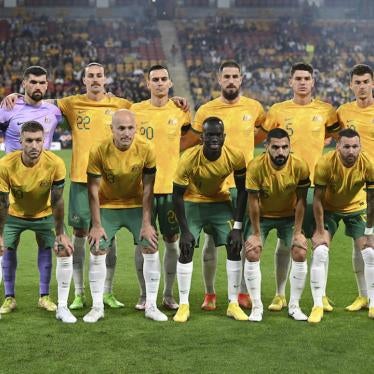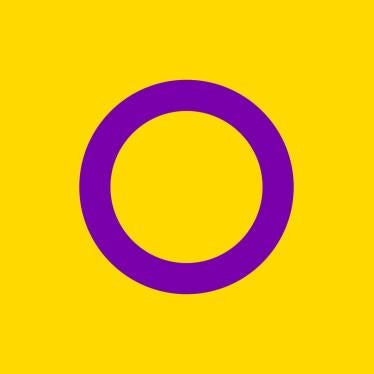August 7, 2014
Committee Secretary
Senate Legal and Constitutional Affairs Committee
PO Box 6100
Parliament House
Canberra ACT 2600
Dear Members of the Legal and Constitutional Affairs Committee of the Australian Senate,
Inquiry into the Recognition of Foreign Marriages Bill 2014
Your Committee is looking into the issue of recognizing foreign same sex marriages and will pay specific attention to
a) the social and economic benefits of recognising foreign same- sex marriages,
b) the social, cultural and economic impact of marriage equality in foreign countries,
c) the impact on religious communities and religious freedoms of marriage equality in foreign countries.
Human Rights Watch has followed the discussion about the issue of same sex marriage and whether it should be introduced in Australia for years now. I invite you to look back at a country which has been through the same discussions and soul searching about 15 years ago. Several of the experiences in the Netherlands are relevant for your inquiry.
In 1994, I was a member of the Dutch parliament and proposed to introduce marriage equality legislation. Years of debate ensued.
The main argument often used against marriage equality was that God created Adam and Eve and thus only recognizes a marriage between a man and a woman. In response to that, leading Dutch politicians explained that in the Netherlands there is a separation between church and state. In the Netherlands, by changing the law the government was broadening civil marriage. Freedom of religion means that religious denominations have the right to exclude same-sex couples from wedding ceremonies within their churches, synagogues, or mosques. The state however is bound by principles of non-discrimination and equal treatment, fundamental rights also long-recognized in Australia.
The majority of parliamentarians eventually supported marriage equality. Prime Minister Wim Kok, who led a Labor/Liberal coalition government of three political parties, and who initially was against the concept of same-sex marriage, came around and did not block the implementation of the law but decided to support it. The first same-sex marriages took place more than 13 years ago, on April 1, 2001.
As of January 1, 2013 the Netherlands had almost 16.8 million inhabitants. In 2011 there were 71,572 civil marriages of which 601 were between two men and 754 between two women. In 2012, these figures are 70,315 civil marriages of which 544 were between two men and 741 between two women. These figures show that men and women who want to marry each other do not shy away from civil marriage because of the possibility for same sex couples to get married.
Over the last 13 years, same-sex marriage has been accepted by a large majority of Dutch society. It has become a non-issue. People are used to seeing two persons vowing to take responsibility for one another and support each other. Their gender is not relevant.
The younger generation of people up to 25 years hardly realizes there was a time civil marriage was not open to same sex couples. Approval rates of same sex marriage are high. According to the 2011 national survey, conducted by the government’s Social and Cultural Planning Agency (Sociaal en Cultureel Planbureau), 92 percent of the Dutch population believes that gay men and lesbian women should be free to live the lives they want to lead. Eighty-two percent of the population expressed its support for same sex marriage.
Even opponents of the same-sex marriage bill changed their minds. One well-known example is Hannie van Leeuwen, who was a Christian-Democratic senator at the time of the parliamentary debates and a fierce opponent. In 2005 she publicly said: “At the time I opposed same-sex marriage, I was led by fear. Having seen so many gay and lesbian couples getting married, I realize I was wrong. I don’t understand anymore what made me treat gays and lesbians differently from other citizens.”
The political parties which voted against the bill did not attempt to change it when they came into power. The Christian Democratic Party (CDA) formally changed its position and is now in favor of same sex marriage.
Not only in the Netherlands, but also elsewhere have politicians of all political persuasions stood up in support of same-sex marriage. They realize that gays and lesbians are not a separate group with a different sexual orientation; they understand gays and lesbians are part of society. They are our sons and daughters, our brothers and sisters, our fathers and mothers, our friends and neighbors.
Before the United Kingdom (England and Wales) adapted its marriage legislation in 2013 (Scotland will follow later 2014) British Prime Minister David Cameron spoke at the Conservative Party’s conference in Manchester in October 2011:
We’re consulting on legalizing gay marriage. To anyone who has reservations, I say: Yes, it’s about equality, but it’s also about something else: commitment. Conservatives believe in the ties that bind us; that society is stronger when we make vows to each other and support each other. So I don’t support gay marriage despite being a Conservative. I support gay marriage because I’m a Conservative.
In 2013 marriage equality came into force in New Zealand, France and Uruguay. In June 2014 Luxembourg voted with a vast majority in favor of same sex marriage and adoption by gay couples. In Ireland the government announced to organize a referendum in 2015, needed to change its Constitution. If the majority of the Irish population will vote in favor, Ireland will include in its Constitution that a marriage consists of two people irrespective of their gender. Thus, Ireland will become the first country in the world to include same sex marriage in its Constitution.
In the United States, same sex marriage is legal in the following states: Massachusetts (2004), California (2008 for four months, then from 2013), Connecticut (2008), Vermont (2009), Iowa (2009), New Hampshire (2010), Washington, D.C. (2010), New York (2011), Maine (2012), Maryland (2012), Washington (2012), Delaware (2013), Rhode Island (2013), Minnesota (2013), New Jersey (2013), Hawaii (2013), New Mexico (2013), Oregon (2014), Pennsylvania (2014) and Illinois (2014).
People migrate to other countries, for instance, because of work opportunities. Married same sex couples and their children do as well. It is important for them that their marriage will be legally recognized in the country where they start their new life. The United Nations has understood that it needs to legally recognize employees who are married to a spouse of the same gender.
On July 3, 2014, the United Nations changed its policy towards recognizing same sex marriages. United Nations Secretary General Ban Ki-moon formally announced the landmark policy change, introduced through a Secretary-General’s Bulletin (official administrative directive).
The policy change means that Australian gay or lesbian citizens who married elsewhere and work for the UN, anywhere in the world, will have their civil marriage recognized as if it were a marriage between a man and a woman and will receive equal benefits.
The eyes of the world are now on Australia. Australia is seen as a country which supports the rights of equal treatment and to be free from discrimination.
I urge you to do the right thing and respect the marriage equality laws that were adopted in many countries in the world and grant equal marital rights to those same sex couples that came from other parts in the world to live in Australia.
Respectfully yours,
Boris O. Dittrich
Advocacy director
Lesbian, Gay, Bisexual, and Transgender Rights Program








